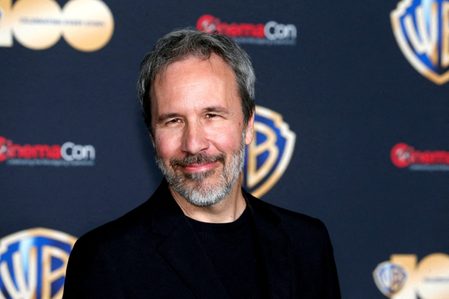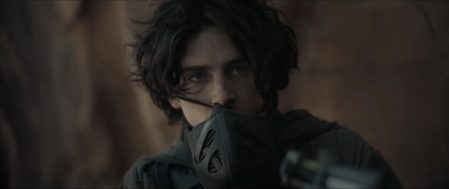SUMMARY
This is AI generated summarization, which may have errors. For context, always refer to the full article.

Spoilers ahead.
First, an admission: I have no prior knowledge of Dune outside of Denis Villeneuve’s work. I haven’t been acquainted with either the 1965 science fiction novel of the same title written by Frank Herbert or the attempts by David Lynch and Alejandro Jodorowsky at adapting the source material into the big screen.
But that is the beauty of cinematic language and, by extension, film criticism itself: one is not limited to a solitary lens through which one can read and parse a piece of work. If anything, film criticism becomes more exciting when one refuses to adhere to banal ways of seeing. Which is to say, whatever Villeneuve, whom I’ve admired so much chiefly because of Arrival, has achieved in this sequel should not solely be measured based on its source material, regardless of the fact that Dune: Part Two does pan out like a middle — and middling — part of an expansive saga.
Filmed entirely in the IMAX format, Dune: Part Two pulls us deep into its spice-obsessed and sandworm-induced world, and the design through which Villeneuve crafts all the scenery really has the makings of an epic vision, given how rare, if not difficult, it is to steer a work of this scale, even for the best of directors.
By wielding ultrawide vantage points, blank space, and silhouettes, Villeneuve immerses us into the harsh conditions of Arrakis, the desert planet harboring valuable deposits of spice that everyone is bent on controlling. Such a brutal framing, heightened by Hans Zimmer’s cutting score, allows us to feel the desert’s blistering heat and inhale danger whole and heavy with exhaustion, as if we’re actually inhabiting the landscape, thereby effectively establishing the film’s mood.
At the center of the parched earth is Paul Atreides (Timothée Chalamet), the remaining heir to House Atreides who has gone into the desert after the massacre in the first film, staged by House Harkonnen, who now takes control of the planet. At Arrakis, Paul meets Stilgar (a subtly hilarious Javier Bardem), the Fremen tribal leader venerating the Atreides boy as the chosen one that has been foreseen to lead his people to the promised land, which, to some extent, feels very Zionist, considering the religious aspect that Villeneuve and co-writer Jon Spaihts have affixed in the narrative, but failed to broaden beyond surface understanding.
Congruent with this are the schemes actively plotted by Paul’s mother, Lady Jessica (Rebecca Ferguson), to further the savior lore and gain more alliance for the impending intergalactic holy war. Here, Lady Jessica takes on the role of Fremen Reverend Mother, after undergoing a Bene Gesserit ritual, which ultimately alters her pregnancy and the way she sees things.
Picking up where its predecessor left off, much of Dune: Part Two revolves around Paul trying to learn the ways of the Fremen. Stilgar puts him to the test, the peak of which unfolds when Paul, twink as he is, tries to ride and take control of an enormous sandworm, as if he’s the James Bond of the sand. It’s so thrilling to look at so much that it pales in comparison to the rest of the film. After this, Paul gains the tribal name Muad’Dib and vows to avenge his father’s death.
He also forges a relationship with Chani, the strong-willed warrior who doubles as the other half of this star-crossed romance and Paul’s moral compass. Here, we see a more utilized Zendaya, who has been reduced into nothing but a vague epiphany in the first installment. And it is through Zendaya’s Chani that the film finds its emotional focus, or at least some semblance of specificity, given how the material falters in harnessing some narrative depth.
If anything, a huge chunk of the film is spent on navigating the sandscape, only to refuse to get into its granular details. Most of the time, we see Paul plodding through the dire terrain. We see the visions of the future that he’s so keen to avoid. We see him, alongside the Fremen fighters, overcoming the advances of the Harkonnen colonizers, which makes for some of the riveting sequences in the film. Yet, despite all of it, we never really come in close contact with Paul’s internal turmoil, because Villeneuve is too busy entertaining the myth that surrounds his protagonist and the promise of the bigger picture, to which the yet-to-be-determined but obviously looming Part Three will bank on.
And there’s no doubt that the beauty that comes out of the film’s prolonged lingering truly captivates. The problem, however, is that the work is too absorbed in its own artistry, too spruced up to have a real anchor or impart anything worthy of discussion. And it feels so disproportionate that the film takes its time setting the stage, if not operating on broad strokes, only to sprint through some pivotal events in the latter half. Paul is reluctant one moment; the next thing we know he’s ready to conquer Arrakis and the rest of the interstellar territories.
And it doesn’t do the film any favor that the new characters it introduces ends up thinly written. Florence Pugh as the Emperor’s daughter, for instance, exists as nothing but a piece in the future that lies ahead of Paul, hence the inevitability of Part Three. The script barely provides her anything to work on other than give updates (doubling as the narrator) on what’s unraveling in Arrakis. Pugh here is what Zendaya was to the previous film. Austin Butler’s Feyd-Rautha Harkonnen, committed as he is to the part, is also given little dimension, considering that his hairless and excessively white psychopath of a character could be a lot more exciting. Even his final combat with Paul feels so anti-climactic.
Outside of Dune’s filmic world are the recent statements that Villeneuve has made about dialogue in movies.
“In a perfect world, I’d make a compelling movie that doesn’t feel like an experiment but does not have a single word in it either. People would leave the cinema and say, ‘Wait, there was no dialogue?’ But they won’t feel the lack,” he tells The Times of London. Of course, a movie without dialogue, or even without sound, is not far from possible. What is ironic, though, is that some of the lapses of Dune: Part Two could have been addressed through dialogue. The text could have compensated for what the image lacked, because image, ever since I got the sense of how cinema works and evolves, is unfortunately not everything.
The thing about the striking visual panache of Dune: Part Two is that it conceals the weaknesses of its writing and the limits of its insights about fatalism, the messianic complex, and empire violence. The plot points suggest movement, without actually getting there. The filmic craftsmanship is beautiful to marvel at. The bodies mix so well with the grandiosity of the entire space, until they become embellishments altogether, like fine grains of sand in an Instagram-apt scenery. – Rappler.com
Dune: Part Two now hits local theaters.
Add a comment
How does this make you feel?


There are no comments yet. Add your comment to start the conversation.